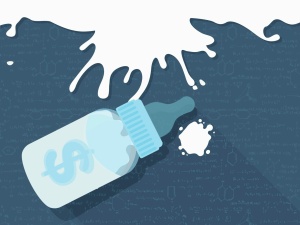Busting the Myth of Science-Based Formula – An Investigation into Nestlé Infant Milk Products and Claims

Executive Summary
Nestlé is the global market leader with almost one quarter market share and with the widest geographical reach for its infant milk products. The company takes particular pride in its scientific credentials, and openly states that it aims to become ‘the world’s leading nutrition, health and wellness company’. This report aims to explore the evidence behind those credentials in the context of its infant milks range and asks whether Nestlé’s commitment to science is genuine, or it is a marketing strategy.
The report looks at Nestlé’s infant milks for babies under 12 months old, sold in 40 different countries, comparing the claims and the ingredients in over 70 products. The investigation reveals many examples of inconsistencies, where Nestlé’s products contradict its own scientific advice. For example, some of Nestlé’s infant milks sold in Hong Kong are marketed as healthier for not having ‘any added vanilla flavour or flavourings for baby’s good growth’. However, the investigation found several Nestlé products that contain vanillin compounds in Hong Kong, mainland China and in South Africa. In a similar fashion, the company advises parents against giving sucrose to infants on its products in Brazil and Hong Kong, but not in South Africa, where products were found to contain the ingredient.
Nestlé also continues to display health claims on products around the world that were explicitly prohibited in Europe by the European Food Safety Authority (EFSA) as not having sufficient scientific evidence. This refers to probiotics and prebiotics, which were labelled on products found in several American and Asian countries. Even in European countries Nestlé displays claims of questionable credibility. In the UK Nestlé markets milks for “hungrier babies”, a claim that was not authorised under European law and is rejected by the National Health Service (NHS), as ‘there’s no evidence that babies settle better or sleep longer when fed this type of formula’. Nestlé also continues to sell several products (in the US, Switzerland, Spain and Hong Kong) that claim to be ‘the closest to breastmilk’, but have very different ingredients from each other.
On the basis of this, the report concludes that Nestlé is not driven by nutritional science, but instead by a sharp and prioritised focus on profit and growth at the expense of infants and their parents. As two out of three babies currently rely on formula, either on its own or in combination with breastmilk and other foods, manufacturers of infant milks have a huge responsibility. They must ensure that their products are safe, fed only to the appropriate-aged infants, as nutritionally complete as possible and strictly informed by science.
The report concludes by calling on Nestlé to conduct an independent review of its product range at global level and to ensure that it respects the Code and subsequent WHA resolutions regarding the appropriate and responsible marketing of infant milks. Finally, policy-makers should strengthen and align marketing and compositional standards worldwide to prevent inconsistent practices in this area by all infant milk manufacturers.
PARTNERS

You might also like...

Milking It – How Milk Formula Companies are Putting Profits Before Science
This report represents the first global investigation into infant milks being sold for babies under 12 months old from the four leading companies: Nestlé, Danone, Mead Johnson Nutrition and Abbott.

Based on science? Revisiting Nestlé’s infant milk products and claims
This report revisits Nestlé’s infant milk products and claims, a year after the publication of Busting the myth of science-based formula (below). In response to findings in Busting the myth in February 2018,...